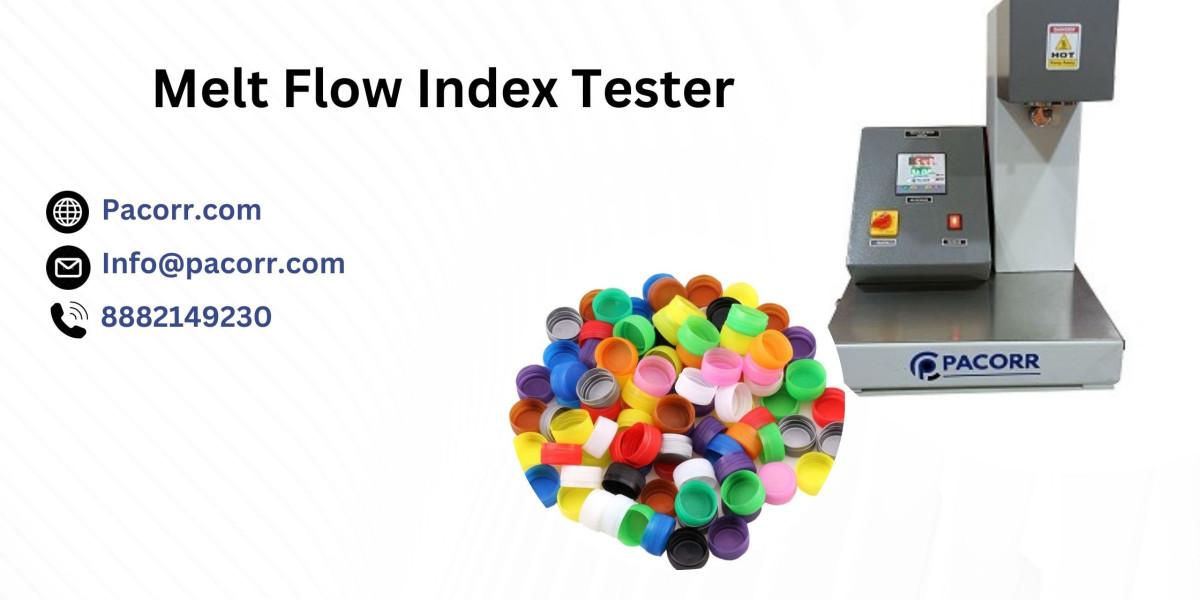What is a Melt Flow Index Tester?
A Melt Flow Index Tester is a device used to measure the rate at which a polymer melts and flows under specific conditions. The measurement is given in grams per 10 minutes (g/10 min) and provides critical information about the material's viscosity and flow characteristics. This information is vital for understanding how the material will behave during processing and in the final product.
The Importance of Melt Flow Index Testing
Quality Control:
Consistency: By measuring the Melt Flow Index Testing, manufacturers can ensure the consistency of their plastic materials, leading to uniformity in the final products.
Predictability: Knowing the MFI allows manufacturers to predict how the material will behave during different processing conditions.
Material Selection:
Application Suitability: Different applications require plastics with specific flow properties. MFI testing helps in selecting the right material for each application, ensuring optimal performance.
Performance Optimization: Choosing the correct MFI helps in enhancing the mechanical and thermal properties of the final product.
Regulatory Compliance:
Industry Standards: Many industries have strict standards for plastic materials. MFI testing ensures that products meet these regulatory requirements, avoiding potential legal and safety issues.
Cost Efficiency:
Process Optimization: Accurate Melt Flow Teste data allows for the optimization of processing parameters, reducing waste and improving production efficiency.
Reduction of Defects: Consistent quality control minimizes defects, leading to lower production costs and less material waste.
Benefits of Melt Flow Index Testing
Improved Product Quality: Consistent and accurate MFI measurements help in producing high-quality plastic products with reliable performance characteristics.
Efficient Manufacturing: By understanding the flow properties of materials, manufacturers can optimize processing conditions, leading to smoother and more efficient operations.
Innovation and Development: MFI data supports research and development efforts, enabling the creation of new materials and products with enhanced properties.
Environmental Impact: Reducing waste and improving efficiency not only saves costs but also minimizes the environmental impact of manufacturing processes.
Why Choose Pacorr for Melt Flow Index Testing Solutions?
At Pacorr.com, we offer advanced Melt Flow Index Tester Price designed to meet the diverse needs of the plastics industry. Our equipment is known for its precision, reliability, and ease of use. Here’s why you should choose Pacorr:
High Accuracy: Our MFI testers provide precise measurements, ensuring reliable data for your quality control processes.
Durable Construction: Built to last, our testers can withstand the demands of rigorous testing environments.
User-Friendly Interface: Easy to operate, our testers help streamline your testing processes, saving you time and effort.
Comprehensive Support: Pacorr offers excellent customer service and technical support to assist you with any queries or issues.
Conclusion
In the competitive plastics industry, maintaining high quality and consistency is essential. A Melt Flow Index Tester is a valuable tool that helps manufacturers achieve these goals. At Pacorr.com, we provide top-of-the-line MFI testers that deliver accurate and reliable results, supporting your quality control and production processes. Explore our range of products and see how we can help you enhance your manufacturing operations.
For more information on our Melt Flow Index Tester and other quality testing equipment, visit Pacorr.com today.








